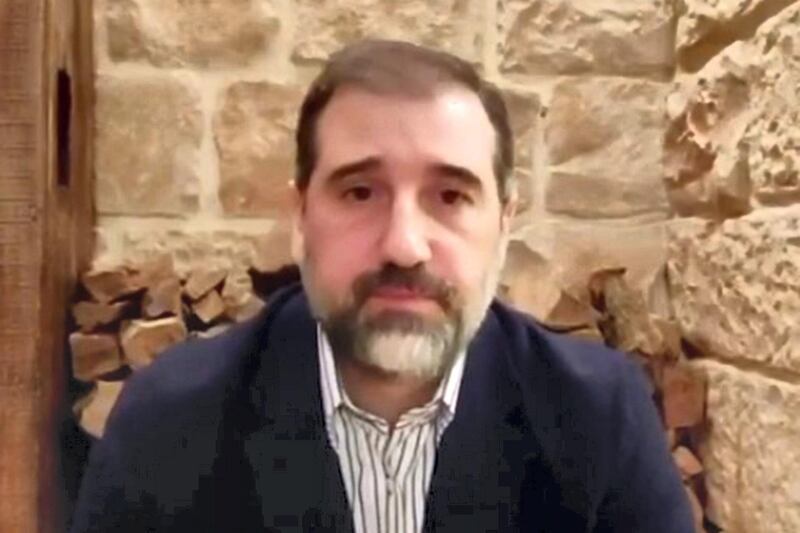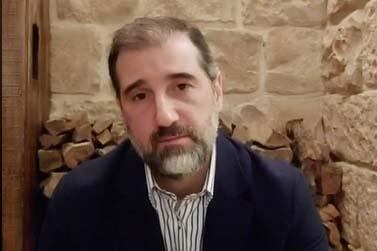Beleaguered Syrian tycoon Rami Makhlouf broke six weeks of silence on Thursday to accuse security forces of arresting his female staff to force him to relinquish his assets.
Mr Makhlouf, who was awarded vast monopolies when President Bashar Al Assad inherited power from his father in 2000, said on Facebook that the women were being detained in a continuation of “arbitrary” arrests against his employees.
He said the security apparatus “was not satisfied” with holding only men “and started pressuring the women in our institutions by arresting them one by one”.
A rift between Mr Al Assad and Mr Makhlouf became public in May, exposing the financial core of Syria's Alawite-dominated regime and a huge business network to which the two cousins are associated.
Bankers say the fissure deepened amid the financial meltdown in Lebanon, where Mr Makhlouf is believed to have kept some of the billions of dollars he holds on behalf of Mr Al Assad and the president's brother Maher, who is the de facto head of the military.
In October and November last year, it became impossible to withdraw dollar deposits from Beirut, a financial centre for the regime and its frontmen for decades.
Mr Makhlouf, one of the richest men in the Middle East, took to Facebook throughout May to battle asset seizures and other regime measures against him, which he said were orchestrated by security agencies he had been bankrolling.
His whereabouts are not known but he has been under a court-ordered travel ban since May.
He said security forces in recent weeks “closed several companies arbitrarily, making hundreds of our employees redundant”.
Almost all of his top managers have also been arrested in the past six months, he said, after the security organisation “did not get what it wanted, which is to make us submit”.
Mr Makhlouf said the men were forced to make false confessions of dealing illegally in foreign currency “to harm our reputation”, while women faced charges he did not specify.
“Isn’t this peak of the forbidden?" he asked. "Where is the law? Where are the regulations? Where is the constitution to protect these innocent people?
“Are they terrorists? All of this for what? To force us to relinquish our properties and monies [of which] we are custodian on behalf of the poor and the needy?”
Mr Makhlouf’s rise in business in the past two decades has depended significantly on the regime jailing and silencing those who criticised the preferential treatment he was given.
A month after a popular revolt broke out against Assad family rule in March 2011, he declared himself a philanthropist, saying he was no longer involved in business.
But regional businessmen and bankers say he devised corporate structures that blurred the line between charities and business and became a pivotal player in the war economy.
At the top of one of the structures is Ramak Humanitarian, which has been paying cash to Alawite families who lost members defending the regime.








